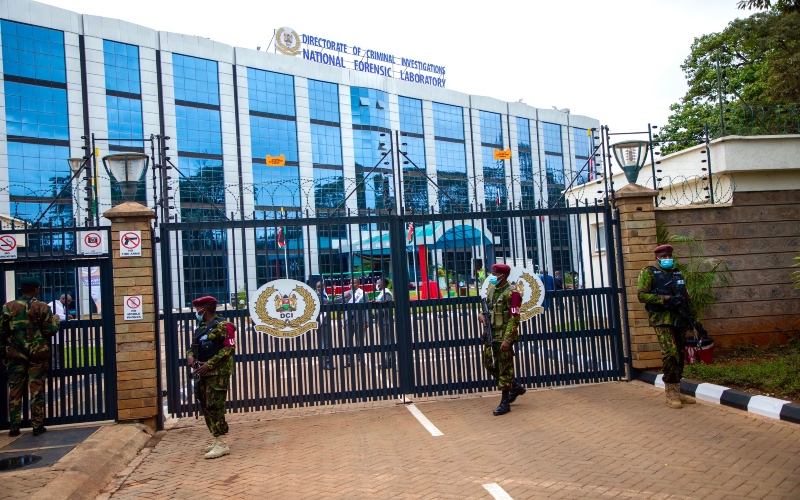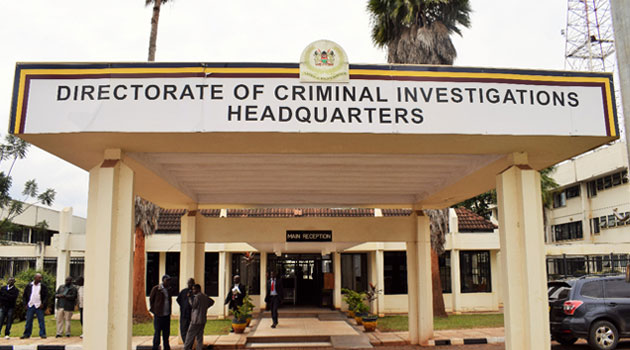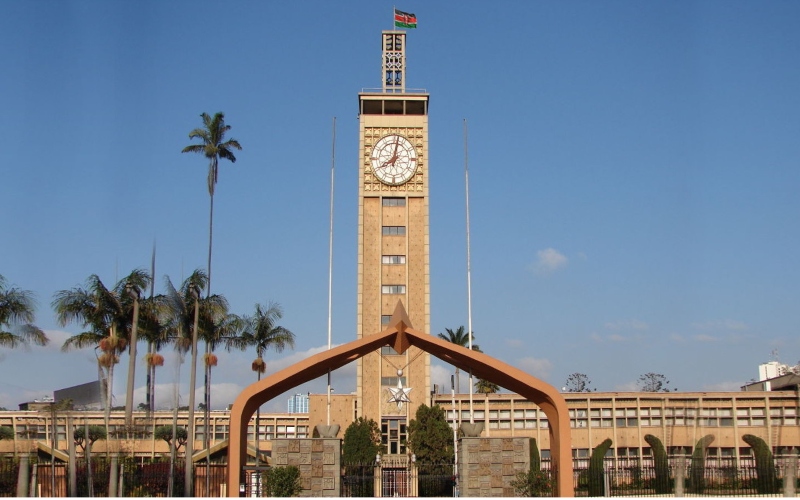IPOA's reliance on DCI's forensic lab weakens police misconduct cases, says IJM

The study highlights “a severe lack of confidence in the effectiveness of the Criminal Justice System in Kenya to protect vulnerable people and deter police officers from abusing their power”.
Investigators say the Independent Policing Oversight Authority (IPOA) risks compromising the reliability of its evidence and the independence of its investigations by using the Directorate of Criminal Investigations’ (DCI) forensic facilities.
According to a survey conducted by the International Justice Mission, relying on DCI makes it difficult for IPOA to fully control its investigations, particularly in sensitive cases involving police misconduct.
More To Read
- IG reshuffles top police ranks as six senior officers moved
- IEBC blames police officers for by-election violence, maintains poll largely successful
- Seven arrested over Kariobangi North church chaos as police pursue more suspects
- Wajir police nab suspect with AK-47 rifle in ongoing crackdown on illegal firearms
- ODPP recommends public inquest into Daystar student Lonah Kathambi’s death after CCTV reveals fall
- 16 arrested over attack on Peter Kaluma during Kasipul by-election
The report emphasises that having its own forensic laboratory would allow the authority to maintain integrity, avoid potential interference, and strengthen public confidence in the justice process.
The study highlights “a severe lack of confidence in the effectiveness of the Criminal Justice System in Kenya to protect vulnerable people and deter police officers from abusing their power”.
IPOA officials and forensic experts argue that working through DCI undermines the watchdog’s independence, especially as the authority continues to challenge other criminal justice actors, including the National Police Service (NPS) and the Internal Affairs Unit.
Created under the Independent Policing Oversight Authority Act, IPOA is mandated to monitor police conduct, investigate complaints against officers, and recommend prosecutions or internal disciplinary measures.
DCI, being part of the police service, presents a potential conflict of interest when Ipoa depends on its resources for forensic analysis.
IPOA chairman Isaac Hassan also noted that delays by the Office of the Director of Public Prosecutions in clearing cases for trial leave victims waiting for justice.
The report states: “…reliance on other criminal justice system institutions in some processes (like forensic analysis) during investigations sometimes impairs the ability of IOs (investigating officers) to take full control of investigations.”
Many investigators within Ipoa believe that having their own lab would reduce delays, protect the independence of investigations, and improve the credibility of evidence presented in court.
The survey also found that both the public and justice sector stakeholders see current investigations into police misconduct as insufficient, leading to low-quality evidence and weakened case outcomes.
The report warns that poor investigative practices often result in police abuse cases collapsing before prosecution.
Strengthening IPOA’s investigative capacity, particularly through an independent forensic lab, is seen as essential for ensuring accountability, protecting victims, and reinforcing trust in the criminal justice system.
Top Stories Today












































